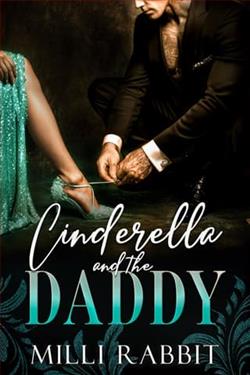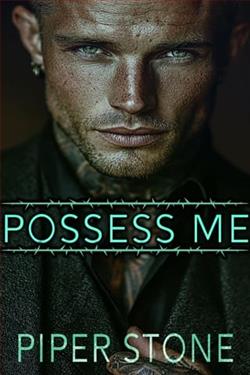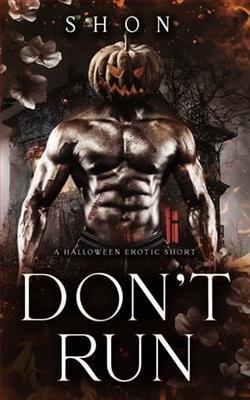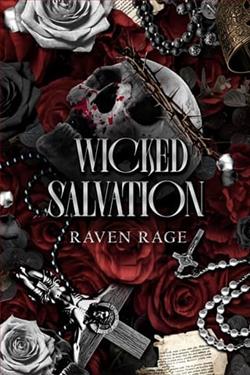Page 56 of Going Home in the Dark
“He and his wife, Karamia, both disappeared,” Bobby recalled.
“Their photos were in the newspaper, all over TV. I remember their faces clearly,” Spencer said, excited by the montage of images cascading through his mind. Indeed, his excitement was so keen that some might have found it unseemly under the circumstances. “Yeah, yeah, I remember exactly how the newspaper looked as it lay there on the table, in the booth at Adorno’s, with a piece of pepperoni that fell off Ernie’s slice and landed right on the face of Karamia, so it looked like Björn was married to a sausage. The polished-chrome napkin dispenser. The ceramic salt and pepper shakers, one a figure of a chef, the other a waitress with—”
“They were from upstate,” Rebecca interrupted. “They were staying at the Spreading Oaks.”
“It was just a motel then,” Bobby said.
“It’s just a motel now,” Rebecca said. “Björn owned a bakery up in the state capital. Karamia was a cupcake specialist.”
“The cops never did find their bodies.”
“Because they were eaten.”
“Never found their car, either.”
“At the time, we wondered if Hornfly could have eaten that, too.”
“We couldn’t go to the police.”
“Who would have believed us? A monster who eats people in two minutes, maybe three? Ten half-formed naked men lying in the church basement? Pastor Larry hates humanity and is part of some conspiracy to destroy us all? They would’ve locked us up in an asylum.”
“Enough of this,” Bobby said. “We’re just telling one another things that all of us already know, the way characters do in lazy books and movies to get information to the audience. We’ve got to decide what to do next.”
They were silent, lost in their thoughts, staring out at the maples and the velvety lawns that surrounded the pavilion, which was when Bobby noticed the person with binoculars. A figure in dark clothes. Standing in tree shadows. Toward the north end of the park. He would not have noticed that someone was conducting surveillance if the watcher hadn’t shifted position to get a better view, briefly stepping into a shaft of sunlight that flared off the lenses of the binoculars. Then the snoop took several steps forward, and Bobby saw something dreadful. Fear gripped him not merely because of the spy’s identity but also because he expected an encounter to ensue. As he watched, the dreadful thing happened again. The flare of a black cape. Britta.
33The Amigos Refuse to Run for It
When Bobby directed his friends’ attention to the right place, Spencer Truedove saw Britta Hernishen watching them from a distance, and he was certain she saw him seeing her. He hoped never to know firsthand what war was like, but at that moment in the pavilion, he better understood the chaos and the terror portrayed in Picasso’s famous painting,Guernica. He felt as the Spanish partisans must have felt when, in furious battle with insurgents, they heard the Nazis approaching in their bombers and knew they were going to die along with many civilians. His leg bones seemed to jellify, and he was overcome by an urge to flee the park even if in an embarrassing and wobbly run.
Had two of his amigos not been there, if the third hadn’t been walled behind a foldaway bed and at risk of genuine death, Spencer might have hightailed it out of the pavilion. But “all for one and one for all” meant holding your ground at any price for as long as your amigos held theirs. Besides, running away would make him too much like his father and, come to think of it, also like his mother. Not that he would cohabit with a sweaty stripper or become his own sister. But he would be so mortified of himself that he might never look in a mirror again, thus robbing himself of the pleasure of admiring how he looked in his hat.
He rather hoped that his friends would run for it so he’d be justified in running, too. But that would never happen.
Rebecca was as spirited and stalwart as Whistlejacket, the horse in the painting of the same name by the eighteenth-century artist George Stubbs. She’d trample anyone who meant to harm her amigos.
Neither would Bobby ever back down. He strove never to become as faithless as his inscrutable birth parents, who had abandoned him when he was a month old. He had been left on a church pew with a four-leaf clover taped to his forehead. Pinned to his diaper, a typewritten note declared,We have lives to live, and so does he, but not together. He’s a bad-luck leprechaun who should be fed to the snakes that Saint Patrick drove out of Ireland, but we don’t have snakes or know where to get any.The authorities called him “Baby Shamrock,” in reference to the four-leaf clover. He was offered for adoption, but no one wanted a bad-luck leprechaun. Being unwanted and knowing they have narrowly avoided being chopped up and fed to serpents, most babies would have made up their minds, right then and there, never to trust anyone again, but not Bobby. He believed in his amigos and never let them down.
In the distance, Britta Hernishen shrank backward into shadows and stepped to her right, behind a tree. The three friends waited for her to reappear, but she did not do so at once, or after a minute, or after three minutes, as if she had transformed herself into a crow and flown away.
A looming threat as frightening as Britta tended to concentrate the mind. Evidently, Rebecca had been thinking hard and fast while waiting for the caped professor to reappear.
“At breakfast, when I was on the phone with Hornfly, he didn’t like the way I talked to him. He said, ‘We will not forget. We are not a pussy-willow genotype like another I could name.’ A genotype is nothing more than the type of genes possessed by an organism. While Spencer was having fun arm wrestling Fred Sanford, I looked it up with my phone. What did he mean ‘a pussy-willow genotype like another I could name’?”
“He means us,” Bobby said. “Human beings. Compared to whatever species he might be, we’re a milquetoast genotype incapable of all the things he can do, like eat people as if they were bananas.”
“No. That’s not it. A genotype isn’t an entire species. It’s the particular genes in each organism. The three of us are human, but each of us has a different group of genes. For instance ... consider the gene for blond hair. All genes are diploid, meaning pairs of which one is dominant and one is recessive. So there are three possibilities when it comes to, say, blond hair—you either have two dominant genes for blond hair or two recessive genes, or one of each. I evidently have two dominant genes.”
“Unless you dye your hair,” Spencer said.
She looked askance at him. As a talented actress, looking askance was something she did with maximum impact. “Why would you even say that?”
Spencer was flustered. “I don’t know. Sometimes I just say things. Iknowyou don’t dye your hair. It was this same color when we were kids, from the first time you sat with us in Adorno’s. Back then you wouldn’t have dyed your hair. You looked like something the cat dragged in, and you didn’t care.”
Cocking her head to look askance at Spencer from a different perspective, Rebecca said, “Honey, if you ever feel compelled topaint in the high romantic style of Rossetti or Millais, that would be a bad idea.”
“Oh, I know that’s not my forte. Besides, I can’t draw.”
“Genotype,” Bobby reminded them as he nervously scanned the park for Britta. “If human beings aren’t the ‘pussy-willow genotype’ he was referring to—then what is?”















